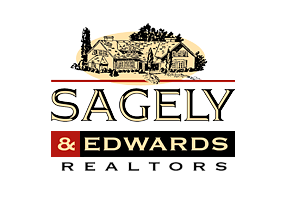
Visit Mobile Site

Find out how much your home is worth!
It's free, simple & easy.
Stay up to date with the latest real estate news and special promotions!
Subscribe to our newsletter to get up-to-date info on the latest housing market conditions for this area.

Feeling comfortable with a real estate transaction is the easiest way to ensure that you have a positive experience, whether it be as buyer or seller. Knowing what is going on and taking an active role in the proceedings o f your real estate transaction will give you the piece of mind necessary to erase some of the worry and doubt inherent to any real estate deal.
With that in mind, while it is important to rely on your realtor, it is also important to take ownership of the process of either home buying or selling to truly understand what is going on. The negotiation of your home’s sale is one area where that extra knowledge will help you not only understand the methodology your realtor is using to get you the best sale or purchase price possible, but also understand what can be done to turn a negotiation’s key function, the compromise, in your favor.
One of the tactics often used in real estate negotiation is to take an extreme position and bargain down from that position, hoping to get the price you really want after offering something extremely low or high to begin with. There is certainly merit to that stance, but the nuance of the tactic comes in when deciding just how extreme a position can be without scaring off your potential partner in the real estate transaction.
For example, offering to purchase a home for $50,000 under its list price is not taking an extreme position, it is taking a hyper-extreme position sure to get you laughed at. What you’re shooting for is a number that is obviously too low but one that will get you to the negotiating table where your realtor can work at hammering out a price you can live with.
Many home buyers when negotiating a price will try to raise their offer by a particular amount to get you to lower your asking price by that same standard amount. One tactic for compromising involves not simply reacting in kind, but reacting with a drop in sale price somewhat lower than the increase in the offer price.
For example, you could offer me $1,000 more on my property, expecting me to drop my asking price $1,000 as a reaction. Instead, I’ll drop my asking price by $500 and go from there. While this move certainly has the potential to anger a potential buyer, it could also slow the rate at which you drop your price, netting you a higher selling amount in the end for your piece of real estate.
Finally, think about throwing in tangible benefits that may not be important to you, but sound impressive to your buyer. Perhaps instead of dropping the price of the home by a certain amount, offer to waive a particular fee or offer to pay a particular closing cost. Maybe they want something within the home or want you to replace a particular item.
Use these desires as bargaining chips and sometimes you can save money through offering services over hard cash. It may cost you $500 to replace a certain item and offering that replacement service could get you out of dropping your selling price by $1,000. These types of situations are common and can sometimes net you benefits in getting a compromise on your terms rather than a potential buyer’s.
No matter what your tactic, taking these negotiating tips can not only help you understand your home transaction, but prepare you for the world of real estate investment as well. Often, real estate investment opportunities have more negotiable terms and these tactics can come in handy in that arena as well. The compromise is an accepted part of most real estate transactions and using the art of the compromise to benefit you can save you thousands of dollars in your next negotiation.